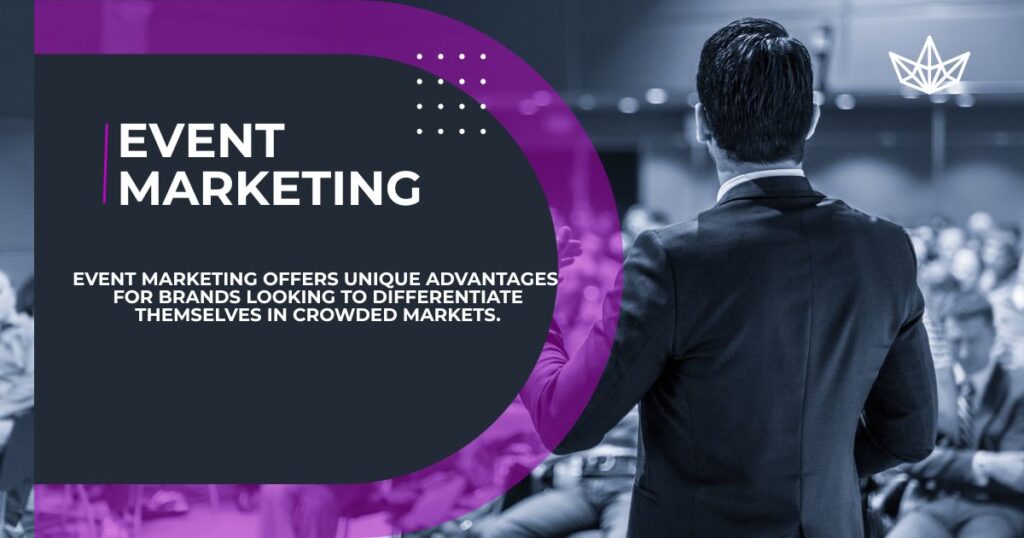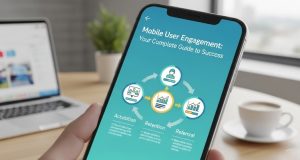What Is Event Marketing and How Can It Elevate Your Brand

Event marketing has become a powerhouse strategy in the world of advertising. Companies of all sizes are realizing its ability to drive brand awareness, strengthen customer relationships, and create unforgettable experiences. But what exactly is event marketing, and how can your business harness its full potential?
This blog will explore the concept of event marketing, its benefits, the various types of events you can use, and actionable steps to create an impactful event marketing strategy.
What Is Event Marketing
Event marketing is the process of planning, organizing, and executing events to promote a brand, product, or service. It’s an experiential approach designed to directly engage audiences, offering them a memorable interaction with your business in real time.
These events can vary greatly, from large-scale conferences to intimate workshops, and they can take place in person, online, or in hybrid formats. What sets event marketing apart from other advertising tactics is its ability to create genuine, live connections with an audience.
Why Event Marketing Is Important
Event marketing offers unique advantages for brands looking to differentiate themselves in crowded markets. Here’s why:
- Building Personal Connections: Events allow you to engage directly with your target audience, fostering trust and meaningful relationships.
-
- Brand Awareness: A thoughtfully executed event amplifies your brand’s visibility, making it more memorable to your audience. – Lead Generation: Events provide opportunities to capture contact information and attract high-quality leads interested in what you offer. – Instant Feedback: Face-to-face (or virtual) interactions make it easy to gather real-time feedback and understand your audience’s needs. – Enhanced Content Opportunities: Events can be repurposed into blogs, social media posts, videos, or podcasts, keeping your brand top of mind long after the event ends.
According to the Event Marketing Institute, 74% of consumers say engaging with branded event marketing makes them more likely to buy the promoted product. Numbers like these underscore event marketing’s value in driving tangible results.
Read our latest blog : Plan a Mobile Storytelling Campaign
Types of Event Marketing
When it comes to event marketing, there’s no one-size-fits-all strategy. Below are some common types of events you can explore, depending on your goals and target audience.
1. Conferences and Trade Shows
Conferences and trade shows are popular formats for showcasing your brand to a larger industry-specific audience. These events not only position your business as a thought leader but also enable you to network with peers, partners, and potential customers.
Example: Dreamforce by Salesforce is a prime example of a large-scale conference that provides educational sessions, product showcases, and networking opportunities.
2. Webinars
Webinars are virtual presentations, workshops, or lectures conducted online. They’re cost-effective and allow you to reach a global audience without logistical hurdles.
Benefits:
- Flexible attendance for participants
- Ideal for educating audiences about your product or service
- Great for collecting email leads and building subscriber databases
3. Experiential Marketing Events
Experiential events are all about giving your audience an immersive, sensory experience. These can include product sampling booths, pop-up shops, or interactive art installations.
Example: Coca-Cola’s “Share a Coke” campaign involved personalized pop-up vending machines that drew significant customer interaction and boosted brand loyalty.
4. Product Launches
Organizing an event to debut a new product or service creates buzz and excitement. A well-organized launch event ensures maximum exposure for your new offering.
Example: Apple’s annual product launch events are iconic, attracting global attention and setting the tone for their brand’s innovation.
5. Charity Events
Aligning your brand with a cause resonates deeply with socially conscious consumers. Hosting charity galas, fundraising runs, or donation drives can showcase your company’s values while making a positive impact.
Example: Patagonia, known for its focus on sustainability, hosts events aimed at environmental causes, effectively connecting their brand to meaningful initiatives.
6. Hybrid Events
Hybrid events combine elements of both in-person and virtual experiences, allowing brands to engage with both local and global audiences. They’ve gained popularity due to the COVID-19 pandemic’s impact, offering added flexibility.
Pro Tip: Hybrid events require robust technology to ensure a seamless experience for both in-person and remote attendees.
How to Build a Winning Event Marketing Strategy
Creating an event marketing campaign may seem daunting, but with a clear plan, you can execute it successfully. Follow these steps to craft an effective event strategy:
1. Define Your Objectives
Clearly identify what you want to achieve with your event. Are you trying to generate leads, increase brand awareness, or enhance customer loyalty? Your objective will drive every aspect of your event plan.
2. Understand Your Target Audience
Get to know your target audience’s preferences, challenges, and interests. This will help you create an event that resonates with them and delivers value.
Tip: Use surveys, social media insights, and analytics tools to refine your audience profile.
3. Create an Engaging Experience
An event should be more than just informative; it should captivate your audience. Incorporate interactive elements like Q&A sessions, live demos, or gamification to maintain attendees’ interest.
4. Promote Your Event
Promotion plays a critical role in ensuring your event’s success. Use a mix of channels, such as:
- Social Media: Post teasers, countdowns, and behind-the-scenes content.
- Email Campaigns: Send personalized invites and reminders to your subscribers.
- Influencers: Collaborate with influencers relevant to your industry to spread the word.
5. Prepare a Follow-Up Strategy
The end of the event isn’t the end of your marketing efforts. Make sure to:
- Send thank-you emails to attendees.
- Share event highlights, such as photos, videos, or presentation slides.
- Reach out with additional resources to further nurture your leads.
6. Measure the Results
Use data to evaluate your event’s performance. Analyze metrics such as attendance rates, engagement levels, and lead conversions to determine what worked and areas for improvement.
Example: If you hosted a product launch event, measure how many attendees signed up for your product demo or made purchases directly after.
Take Your Brand Higher With Event Marketing
Event marketing represents a golden opportunity to create memorable interactions with your audience. Whether you’re hosting a massive conference or a small webinar, the right strategy can elevate your brand and boost customer loyalty.
Ready to bring your event marketing vision to life? Start small, measure your impact, and grow from there. Your audience is waiting for an unforgettable experience. Are you ready to deliver it? Let’s dive into the essential steps to take your brand higher with event marketing.





